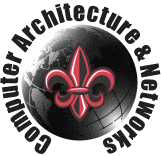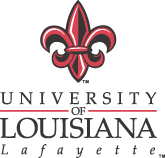Mission
CAN Laboratory provides a stimulating environment in CACS for members to undertake basic research and experimental studies related to the disciplines of computer architecture and computer networks. It strives to promote high quality research, to facilitate collaborative effort in tackling topics poised for continued interest and lasting impacts, and to disseminate research results widely. CAN is equipped with modern computing and communication gear to meet the needs of active research and educational activities.

Lab Facility
CAN houses an array of the state-of-the-art computing and communication equipment dedicated to the support of research projects and educational activities. Its facility includes one cluster of twelve networked Dell PowerEdge 1950 servers (each with two dual core Intel® Xeon® Processor 5160 @ 3.0 GHz, 32GB of DDR2 DRAM, and two 7200-RPM HDDs), interconnected by a Mellanox 12-Port 10GbE RDMA-enabled switch (Model SX1012X with an ultralow latency in data transfer) via the ports of RDMA-enabled Mellanox 10GbE ConnectX-3 NICs equipped in servers. In addition, a collection of Dell PowerEdge R420 servers, R430 servers, PowerEdge 6450 and 7150 are networked by Cisco Catalyst 3524 switch and other Gigabit Ethernet switches, as computing platforms for architectural simulation runs and the instructional purpose. Every R420 has two processor sockets, each equipped with 6-core Intel® Xeon® Processor E5-2430 and 96-GB DDR3 DRAM, and every R430 has a single 8-core Intel® Xeon® Processor E5-2620 v4 and 32-GB DDR4 DRAM, whereas each PowerEdge 6450 is a 4-way server and every PowerEdge 7150 server houses dual Itanium processors. Besides a variety of wireless sensors and peripheral devices, more than one dozen of desktop PC's and laptops are also available to group members for research use. In addition, CAN is equipped with a Cisco 12016 Internet core router (with fast Ethernet linecards), an Adtech AX/4000 router test system from Spirent Communications (with two 10/100 BASE-T interfaces, two 1-Gbps generators/analyzers, and an RFC 2544 Performance Test Suite). These machines constitute a heterogeneous environment suitable for our investigation into topics mainly on computer architecture and networked systems.


